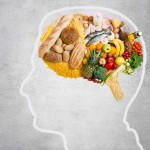
Intermittent fasting is all the rage these days and has been the subject of popular documentaries, websites, and books. Claims made for this pattern of eating would seem rather late night TV infomercial too good to be true (Lose weight! Prevent cancer! Reverse diabetes! Free steak knives!) were it not based on a significant body of research showing that calorie restriction and intermittent bouts of fasting can have profound effects on the body.
A recent authoritative review (Longo and Mattson, 2014) highlights the main findings of the last two decades of research (and contains all the references referred to below).
In humans, intermittent fasting has been shown to:
- Lead to weight loss
- Improve insulin sensitivity
- Reduce blood pressure
- Reduce inflammation
- Reduce levels of hormones linked to an increased risk of cancer, including IGF-1

Research has highlighted a number of benefits of intermittent fasting
In animals, famously, it has been shown to extend lifespan dramatically (2-fold in yeast, and in rodents by 30%) and to improve the outcomes of a variety of cancers, as well as increasing cellular stress resistance in heart and muscle.
However, the effect of intermittent fasting on one organ has not received quite as much attention: Woody Allen’s second favourite organ, the brain. The review from the NIH (Longo and Mattson, 2014) also outlines what understanding we have of the effect of intermittent fasting on the brain.
In rodent models, intermittent fasting reduces the neurological pathology and clinical symptoms of Alzheimer’s disease, Parkinson’s disease and Huntington’s disease (in transgenic animals, bred to over produce the causative protein in each of these dementias). Intermittent fasting also reduces the extent of damage (at the level of brain and behaviour) following epileptic seizures, stroke, traumatic brain and spinal cord injury.
I’m sorry, but skipping breakfast does what now?
This is all rather remarkable. The ‘treatment’ in these studies does not involve cutting edge modern biotechnological wizardry: no drugs, no stem cell technology, no deep brain stimulation, and no silencing ribonucleic acids. These studies simply involved restricting the time period during which the animals could eat (the most commonly employed paradigm is alternating one day of eating with one day of fasting, though variations exist).
Studies in humans are certainly more scarce but early work does suggest that intermittent fasting and calorie restriction can be good for the brain. Caloric restriction improves verbal memory in overweight women and in elderly subjects and in people with mild cognitive impairment a low glycaemic diet improves visual memory, markers of Alzheimer’s disease and the efficiency of brain energy metabolism.
These studies are largely in rodents, admittedly, but what drug exists that could potentially reduce your risk of Alzheimer’s, Parkinson’s, Huntington’s and your vulnerability to stroke and brain trauma, with the side effects of an occasionally grumbly belly? It is possible that the inherited wisdom of the benefits of three square meals a day may have the same level of evidentiary support as ‘an apple a day keeps the doctor away’.
Recently scientists have been asking: if intermittent fasting can be good for the brain what can it do for mood disorders? A recent qualitative review (Fond et al, 2013) has examined what progress has been made on this front.

If intermittent fasting can be good for the brain what can it do for mood disorders?
Methods
The authors conducted a search on the Medline, Web of Science and PsycINFO databases to identify any studies that had examined the effect of fasting on mood or depression.
Results
They identified 92 studies.
- One early study, conducted in the 1970s, reported a remission rate of 86% in depressed patients subject to a (rather stringent) regime of 10 days of complete fasting.
- Other studies conducted in the past decade found that fasting or calorie restriction in healthy volunteers or those with medical issues (like irritable bowel syndrome or pain syndromes) showed improved energy levels, improved mood and reduced depressive and anxiety symptoms.
- Another useful paradigm studied is the intermittent fasting Moslems undergo during the month of Ramadan. Studies in these subjects have found decreased anxiety, and, in those with bipolar affective disorder, a reduction of both manic and depressive symptoms.
- There were also studies identified which have found no change in depressive or anxiety symptoms.
Why would fasting or calorie restriction affect brain health and mood at all?
The review authors identified a few potential explanations.
- One particularly interesting theory relates to the idea of hormesis: that a mildly negative stimulus can protect against a subsequent more severe insult. In animals, intermittent fasting has lead to an increase in brain-derived neurotrophic factor, thought to be important in the effect of antidepressants, increased neurogenesis (the growth of new neurons), enhanced synaptic plasticity and improved stress tolerance. In other words, it is possible that intermittent fasting is making the brains of these rodents hardier and more resilient.
- Other theories have focused on the effect of fasting on serotonin metabolism, improved sleep or the role of ketone bodies.
Conclusions
Clearly, the studies conducted so far have serious limitations; no study identified was a randomised controlled trial examining the effect of intermittent fasting or calorie restriction on mood disorders.
Thus far studies have been small, used a variety of different fasting paradigms, participant cohorts and outcome assessments. These studies have generally identified mood improvements between day 2 and 7 of fasting and longer term effects have not been studied.
However, it is profoundly intriguing that something as simple as skipping a meal a day or eating your daily calories in a shorter time period (without a reduction in overall calories) can have a profound effect on your bodily health, your brain and your mood.
Further studies will need to distinguish between the acute and chronic effects of fasting, further examine effects in populations with mood disorders and employ randomisation, standardised controls and outcome measurements.
Such early findings have already added to interest in the growing field of non-pharmacological, non-psychological therapies in psychiatry (such as exercise, sleep, light, and diet) that can affect mood and anxiety. They also serve as a reminder that our brains are embodied, and that the three pounds of flesh between our ears can be affected by a number of interventions that have not been conventionally considered psychiatric therapies.

It’s early days and more reliable research is needed to examine whether fasting could be a useful tool for people with mood disorders
Links
Fond G, Macgregor A, Leboyer M, Michalsen A. Fasting in mood disorders: neurobiology and effectiveness. A review of the literature. Psychiatry Res. 2013 Oct 30;209(3):253-8. doi: 10.1016/j.psychres.2012.12.018. Epub 2013 Jan 15. Review
Longo VD, Mattson MP. Fasting: molecular mechanisms and clinical applications. Cell Metab. 2014 Feb 4;19(2):181-92. doi: 10.1016/j.cmet.2013.12.008. Epub 2014 Jan 16.

RT @Mental_Elf: Can intermittent fasting improve mood? http://t.co/pturEewEUx
@Mental_Elf I reckon my intermittent fasting made my girlfriend’s mood worse. Is there an evidence base to support my claims?
Can intermittent fasting improve mood?: Intermittent fasting is all the rage these days, but is the practice b… http://t.co/w3cR8V5jaG
The Mental Elf liked this on Facebook.
Carina Kirby liked this on Facebook.
Shelley Louise liked this on Facebook.
João Leal liked this on Facebook.
Becky Fredericksen liked this on Facebook.
very well done and interesting article !
best regards
G.FOND
Intermittent fasting is all the rage these days, but is the practice backed up by any reliable research? Mark Horowitz investigates, but has he bitten off more than he can chew? Please let us know what you think of this blog.
Intermittent fasting is all the rage these days, but is the practice backed up by any reliable research? http://t.co/pturEewEUx
@Mental_Elf @BPSOfficial @alqaydy
In the news: Can intermittent fasting improve mood? – via @Mental_Elf http://t.co/y8cUXi3g93
“Can intermittent fasting improve mood? – The Mental Elf” Maybe!? http://t.co/sIiTp9ZghL
Mental Elf: Can intermittent fasting improve mood? http://t.co/AZTEZL5muT
Research has highlighted a number of benefits of intermittent fasting in humans http://t.co/2HPrPj8D0J
@Mental_Elf @DrMichaelMosley
@Mental_Elf Good stuff. The potential benefits of IF are quite amazing indeed!
@Mental_Elf IF hyped for weight loss but arguments for brain health sound convincing.Also pt of practice in many religions incl Hinduism
Can intermittent fasting improve mood? – Maybe!? http://t.co/PksmB8x2Zv via @Mental_Elf #food #psychology #neurobiology
Jean Smith liked this on Facebook.
Hampshire Healthcare Library Service liked this on Facebook.
Sally Morton liked this on Facebook.
Scott Inglis liked this on Facebook.
Caroline Tomes liked this on Facebook.
Kirsten Corden liked this on Facebook.
Abi Johnson liked this on Facebook.
#Fasting and #MoodDisorders @markhoro gives us the low down on the current state of the evidence http://t.co/pturEewEUx
The curious mood benefits of intermittent fasting http://t.co/6qP2XEqJqS
Very nice article Mark! Glad to see more material on IF online.
I’ve been practicing different variations of IF for years now, at first for weight management and later, for health benefits. As you say – it really is quite remarkable how much potential IF seems to have when it comes to health benefits.
And for many people, it’s not even something they have change about their lifestyle. Many people instinctively skip breakfast and even lunch. And for those used to the 3+ meal patterns through the day – no worries, our body often adjusts in a few weeks to a new feeding pattern and most of the hunger pangs and other side-effects just about disappear.
It also teaches a person quite a bit about the real feeling of hunger and how addicted we can really be to food in this day and age, even without physically being hungry. My experience in a 36 hour fast was quite interesting: http://www.hungerfitness.com/36-hour-fast-and-food-addiction/
Hope to see more great articles, Mark!
Don’t miss: Can intermittent fasting improve mood? http://t.co/2HPrPj8D0J
It’s not conclusive but #fasting may improve mood. “@Mental_Elf: Don’t miss: Can intermittent fasting improve mood? http://t.co/HKAJkqg0hs”
@Mental_Elf not mine
Can intermittent fasting improve mood? http://t.co/2U5II7Ub0C via @sharethis
Interesting article on whether intermittent fasting can improve mood http://t.co/GembO40vzr
Can intermittent fasting improve mood? – The Mental Elf http://t.co/TNmPCI0pHO
Jean Smith liked this on Facebook.
Hampshire Healthcare Library Service liked this on Facebook.
Sally Morton liked this on Facebook.
Scott Inglis liked this on Facebook.
Caroline Tomes liked this on Facebook.
Kirsten Corden liked this on Facebook.
Abi Johnson liked this on Facebook.
The Mental Elf liked this on Facebook.
Carina Kirby liked this on Facebook.
Shelley Louise liked this on Facebook.
João Leal liked this on Facebook.
Becky Fredericksen liked this on Facebook.
I aint no neuroscientist but i have fasted from time to time 3 weeks being my longest. I always feel awesome when my body is breaking down its stored fuel. I have been thinking similar thoughts as are suggested above and am going to try it. let me know if you are looking for gineapigs
[…] study was conducted on Muslims who fasted during the month of Ramadan. The subjects were found to have a […]
Wow love this article…intermittent fasting is encouraged in the Islamic faith…it is believed to have spiritual, mental and physical health benefits. I am going to start fasting on mondays and thursdays in accordance to my faith, i am hoping it will stop me from consuming so much sugar and caffeine. Also i am hopeful it will help alleviate the symptoms of my chronic depression
I’m on day 4 eating 1 meal a day to lose weight and improve my mood. I have lost 3 pounds, and my depression symptoms have disappeared. Im also sleeping like a baby
[…] produces the feeling of hunger) might stimulate neurogenesis. As such, it’s possible that intermittent fasting might help combat depression. This also fits with the energy hypothesis, in that when there is a calorie deficit, and energy […]
[…] study was conducted on Muslims who fasted during the month of Ramadan. The subjects were found to have a […]
Sir, Iam interested to have a study on psychological study on fasting therapy . Kindly guide me
J. Vasu Chandrika
when i fast, my depression alleviates. ? i have done 3 nights, 2 days straight of absolute fasting (no food, no water) and 7-day straight of natural fasting (water only). and now, I’m still practicing fasting regularly. ?
[…] Intermittent fasting could improve mood […]
I have bipolar and tried the 16:8 IF method. It did not go well. I started sleeping poorly and ended up in a manic state. Anxiety also definately increased.
I tried fasting for 16 hours and eating 2 meals and a snack within 8 hours. I found it harder to get to sleep. I’m bipolar and take a drug to increase norepinephrine and read that inter. fasting increasing norepinephrine. I was getting very happy – enough to push me into hypomania so I had to stop the inter. fasting. Too bad – because my stomach was getting a lot flatter.
I’m bipolar and I started to feel very happy – so happy that I became manic. Had to abandon the whole experiment.
I believe that intermittent and extended fasting have some real benefits for mood – I am diagnosed Bipolar 1 and take 600mg Lithium Carbonate. Have been eating one meal a day for two months now and am now in addition am doing 3-4 day fasts which I feel to be of particular benefit mentally and physically. I am not comfortable taking Lithium on an empty stomach but feel the benefits outweigh the possible disadvantages. I have found no stomach discomfort. I’d like to be a guinea pig for this kind of reasearch!
I am really interested in this article because this has been my own experience. Skipping breakfast had the bizarre side effect of alleviating my morning depression.